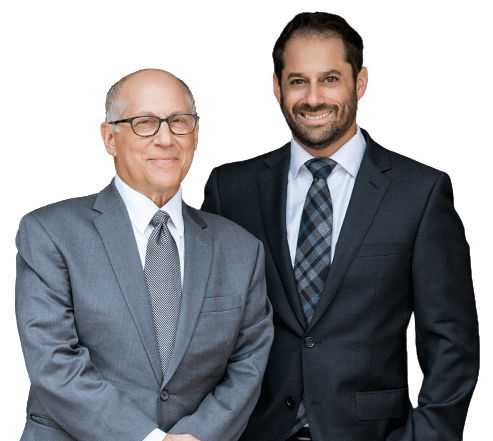
Car accidents are one of the leading causes of injury in the United States. However, the process you follow after getting into a car accident on your personal time versus when you’re on the clock does vary. So, how do you know if you should file a workers’compensation claim or if your employer is liable?
Workers’ Compensation Cases versus Personal Injury Cases
It is important to understand that if you were hurt in a car accident while working and it took place within the course and scope of employment, you have a right to file two cases. One for personal injury against the person who caused the accident and one for workers’ compensation against your employer.
Course and Scope of Employment
When the accident occurred, were you in the line of duty? Course and scope of employment is defined as “actions of the employee which further the business of the employer and are not personal business.” If you are in the course and scope of your employment when you got into a car accident, you would have both a personal injury claim and a workers’ compensation claim.
For example, if your boss tasks you with picking up a delivery from a supplier and on your way there you are rear ended by a driver, your accident happened within the course and scope of employment – you would have both a personal injury claim and a workers’ compensation claim. In the same scenario above, generally speaking, if you decide to pick up lunch on your way back and get rear ended, the accident did not take place within the course and scope of your employment – meaning that you would have a personal injury claim, but not a workers’ compensation claim.*
(*Note: Every situation is unique. Understanding your rights are and who you should be filing your claim against can be difficult. We, at Bentoff and Duber, have experienced lawyers that know what action to take when helping victims of motor vehicle accidents. If you’ve recently been in a car accident at work, contact us for a free consultation today. We’re here to help!)
What about company cars?
You may drive a company car provided to you by your employer or you may operate a company owned vehicle for a living. For example, a truck that requires a Commercial Driver’s License (CDL). Even if you use the company car outside of your scope of employment, there are a few things you have to consider.
- Were you traveling to or from work?
- Were you making a delivery or completing an errand for the employer?
- Were you driving to an off-site job or meeting?
- Were you transporting another employee for business purposes?
- Are you remotely based?
Deviations from these tasks are typically not covered. Additionally, a regular commute to and from work is ordinarily not covered, but there are circumstances that may qualify your claim for workers’ compensation benefits – such as if you are on your way to see a customer, even if you have left directly from your home.
Check your policy
Make sure to review your employer’s policy before you begin doing regular errands for your boss, borrowing your company vehicle to wine and dine clients or getting a job where your CDL is required.
In the event that you are in an accident, document the situation with as much detail as you can, take photos if possible and make sure to contact a lawyer before you file a claim or if your claim is denied to get the compensation that you deserve.
Injured on the job?
Check out these other blogs on workers’ compensation:
- Ohio Workers’ Compensation Laws: Independent Contractors vs. Employees
- Can I be fired for hiring an attorney or filing a workers’ compensation claim?
- Does workers’ compensation cover me if I’m injured outside of work?
- The Five Mistakes People Make When Filing Workers’ Compensation Claims
- What happens if you’re in a car accident with someone who’s uninsured?
About the author: Brandon Duber, a Partner with Bentoff & Duber Co., LPA, is a lawyer with proven experience in the courtroom and expertise in the areas of workers’ compensation, criminal defense, personal injury and medical malpractice law. He received his B.A. from Skidmore College in Saratoga Springs, NY and his J.D. from The Case Western Reserve University School of Law in Cleveland, OH.

